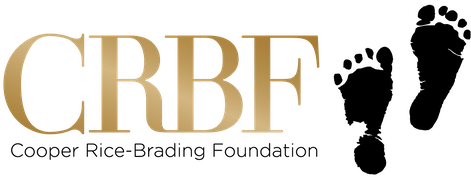At CRBF, we firmly believe that hope lies in research, and we are fortunate to have some of the world’s leading experts right here in Australia.
Over the past 12 months, we have been proud to co-fund the following innovative paediatric and AYA research projects.
CaSP Sarc Programme – Omico Australia UNSW
We are excited to announce the launch of the MoST/CASP-SARC Initiative through Omico Australia, a pivotal new research project focused on improving treatments for sarcoma – one of the most challenging and aggressive cancers. This initiative will help us better understand sarcoma and pave the way for more personalised, effective treatments.
The research will focus on three main areas:
- Harnessing Real-World Data – Analysing information from over 1,500+ sarcoma patients who took part in Omico’s MoST and CASP initiatives. Researchers aim to evaluate current treatment efficacy, identify critical gaps in care, and explore strategies to improve patient outcomes.
- Studying Patient Samples – By analysing biological samples from past MoST-led trials, we aim to find clues (called biomarkers) that can explain why some treatments work or don’t work. This will guide us toward better therapies in the future.
- Targeting Proteins for Personalised Treatments –Scientists will investigate specific proteins in sarcoma patients that could be used as targets for new, precision-based therapies. This could lead to improved outcomes and a better quality of life for people with sarcoma.
Hudson Institute Sarcoma Accelerator
Under the expert supervision of Professor Ron Firestein and Associate Professor Jason Cain, this initiative will create a comprehensive collection of tumour samples from sarcoma patients.
By leveraging cutting-edge technologies, including artificial intelligence (AI), these samples will be studied in intricate detail. The Programme will provide a comprehensive collection of tumour samples from sarcoma patients and grown as avatar/cell-line models. These models will be studied in detail using cutting-edge technology, including artificial intelligence (AI). This approach aims to discover new, more effective treatment options tailored to each patient’s specific type of sarcoma. By understanding the unique characteristics of each tumour, we can develop targeted therapies that are more likely to be effective.
The cell line models will be comprehensively profiled in three dimensions (genomic, epigenomic, and transcriptomic) to provide both gene-specific and pathway-level analyses of sarcoma cancer models. The models and associated data developed through this initiative will form an invaluable resource, helping researchers identify and utilise appropriate sarcoma models for investigational research.
Significantly, data will be shared with the research community via our portal (vicpcc.org.au/dashboard). This publicly available database, already used in over 50 countries, will aid sarcoma research on a global scale.
This pioneering effort aims to discover new, more effective treatment options tailored to each patient’s specific type of sarcoma.
NK Cell Programme Ian Frazer Institute
A funding collaboration by several national sarcoma not for profit organisations, supporting the work of Professor Fernando Guimaraes and his team from the Ian Frazer Institute of Translational Research in Queensland, has led to a significant step forward in the search for a cure for some of the most sinister paediatric sarcomas. The Tie Dye Project, Richies Rainbows, The Kids Cancer Project, Bricks and Smiles – the Zach Minty Project, Tour de Cure Spring Lunch, CRBF, and ANZSA supported by generous donations from Kicking Goals for Xav, Stoney’s Steps Against Sarcoma and Stop Sarcoma
Paediatric sarcomas, including rhabdomyosarcoma, Ewing sarcoma and osteosarcoma, represent a group of malignancies that significantly contribute to cancer-related illness and mortality in children and young adults. These cancers share common challenges, including high rates of metastasis, recurrence or treatment resistance, leading to a 5-year survival rate of approximately 20% for patients with advanced disease stages.
Despite the critical need, therapeutic advancements have been limited over the past three decades. The advent of chimeric antigen receptor (CAR)-based immunotherapies offers a promising avenue for novel treatments. However, CAR-T cells have faced significant challenges and limited success in treating solid tumours due to issues such as poor tumour infiltration, immunosuppressive tumour microenvironments and off-target effects. In contrast, the adaptation of CAR technology for natural killer cells has demonstrated potential in both haematological (blood) and solid tumours (A solid tumor is a mass of solid cancer cells that grows in organ systems and can appear anywhere in the body), suggesting a new therapeutic strategy for paediatric sarcomas.
CCIA Sarcoma Biobank
Young Australians fighting sarcoma, an aggressive tumour that mainly affects children, teenagers, and young adults, will welcome the announcement this week of an exciting new initiative to boost vital research into this disease.
The initiative, known as the ‘Paediatric Preclinical Biobank’, has been made possible through funding of $312,000 by the Cooper Rice-Brading Foundation, which received a generous donation from the Sutcliffe Family Trust in memory of both a young family member taken by sarcoma, and of Cooper Rice-Brading, who also passed away from osteosarcoma in 2017.
Jeremy Sutcliffe, the inaugural Chairman of the Cooper Rice-Brading Foundation, said: ‘Sarcoma is a devastating cancer which disproportionately affects young people and yet is not well known and attracts insufficient funding. The Biobank is a fantastic initiative on the road to developing effective interventions and treatments which will save the lives of our youth in the future.’
The Paediatric Preclinical Biobank will be located at Children’s Cancer Institute, where researchers have developed more than 400 ‘avatar models’ — living models of disease derived from the cancer cells of children with high-risk cancers including sarcoma. These models are vital for the testing of new therapeutic approaches. The funding will support the Biobank’s flagship sarcoma program and will allow 80 unique paediatric and adolescent and young adult (AYA) sarcoma models to be characterised, expanded and made available to the research community.
